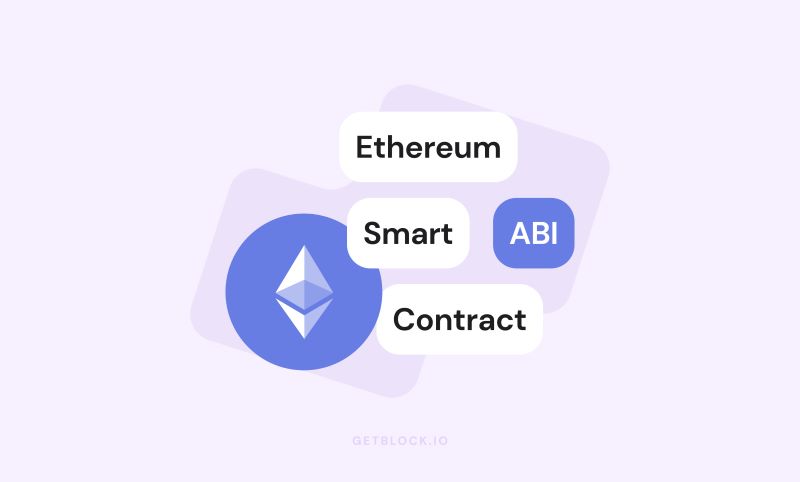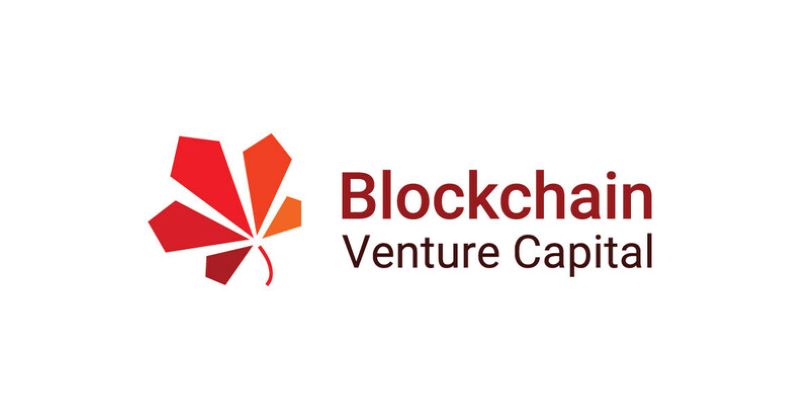Diving into the world of decentralized applications (dApps) can be daunting. That’s where software development kits in blockchain step in to simplify your journey. With SDKs, you unlock a treasure trove of tools and features that streamline the development process. Building dApps becomes less about navigating technical mazes and more about crafting robust, innovative applications. Read on to unwrap the essentials of Blockchain SDKs and learn how they are the game-changers in dApp development. Whether you’re a solo developer or leading a cryptocurrency project, understanding and leveraging SDKs will put you ahead in the blockchain race. Let’s break down how embracing SDKs can make mastering dApps not just possible, but also a breeze.
Understanding the Essentials of Blockchain SDKs
The Role of SDKs in Developing dApps
SDKs are like magic boxes that hold tools for building dApps. These kits mix the ease of a lego set with the power of a swiss army knife, making building dApps simpler for developers. With a quality SDK, like the SDK for Ethereum development, you can craft amazing dApps that work well and look cool. They are a one-stop-shop, packing all you need to take your idea from a sketch to a live app.
Whether you’re crafting a digital wallet or a fun game that earns coins, SDKs have got your back. This is because they come with pre-made chunks of code, called libraries, that do a lot of the heavy lifting. This means spending less time on basics and more time on the cool stuff that makes your dApp shine.
But it’s not just about ease — it’s also about making a solid product. SDKs help keep everything tight and secure, which is huge when dealing with cryptocurrency projects. We’re talking about things like managing digital money, so safety is key. The best part? SDKs offer ready-to-use solutions, so you don’t have to become a security guru overnight.
Key SDK Features Expediting Cryptocurrency Projects
Now let’s chat about the features in SDKs that really make a difference for your crypto projects. Think of these features as your dApp’s superpowers. They can make your dApp run fast, stay safe, and work on different devices and platforms.
Speed: SDKs pack tools that quicken development. They let devs build apps without starting from scratch every time. This is like having a shortcut to finish a race — it gets you to the finish line quicker.
Safety: They also come with built-in security options. This helps protect your dApp and users’ coins from the bad guys. Think of it as a strong lock on your door; it keeps out folks who shouldn’t be there.
Flexibility: One of the neatest things about an SDK is cross-platform support. This means your dApp can work on different blockchain platforms — from Ethereum to others. It’s like a universal key that opens many doors.
Open-Source Options: And for those who love sharing and learning from a community, open-source blockchain toolkits offer just that. Devs can use and improve shared code, like borrowing a recipe and adding your own spices.
When we dive into the nuts and bolts, SDKs are vital for working with blockchain. They give you a structure to build your dApp, while also being flexible enough to adapt to what you need. Whether you’re a pro or just starting out, SDKs can make life a whole lot easier. They’re the helping hand that empowers you to create something unique in the world of blockchain. And the best thing? There’s a perfect SDK just waiting for you to discover it for your project.
The Integration Process: SDKs and Blockchain Platforms
Harmonizing SDK with Blockchain Ecosystems
To build smooth dApp tools, you must first integrate SDK with blockchain. So, what’s a blockchain SDK? It’s a box of shortcuts for building apps on blockchains. For Ethereum development, SDKs are key. They let you create and use smart contracts without starting from scratch. For startups, picking the right SDK is critical. You want your dApp to grow without tech hiccups.
Using SDK means fewer headaches. It’s like having a best buddy that knows blockchain tech inside and out. But it’s not just Ethereum. Hyperledger Fabric SDK also helps, especially for businesses. It provides tools, resources, and helpful guides. Hyperledger has a keen focus on privacy and speed. Integrating such SDKs into your dApps means faster launch times. Plus, you can rely on their robust security features.
Leveraging SDKs for Cross-Platform Compatibility
Now, making tools work across different blockchains is the real challenge. Cross-platform blockchain SDKs are the game-changers here. They let your dApp talk to various blockchain types. It’s like translating different languages so everyone understands.
Think of SDKs as universal remotes for dApps. They work with a range of devices—or in this case, blockchains. When you build with blockchain platforms for development, consider using an open-source toolkit. This is often the best starting point as they are free and have strong community support. These kits often come piled high with docs, tutorials, and helpful forums.
Mobile and Web3 development kits are rising stars in the blockchain world. They let you make apps that can go on phones and use new web tech. This means more people can use your dApp, anywhere and anytime.
In short, the right SDK makes your life easier, your dApp smarter, and your users happier. Whether you’re building the next big crypto project or a handy tool, SDKs help you do it better. Choosing the best one is like picking the right ingredients for a great meal. It could make all the difference. Just be sure to check the SDK’s scalability and usability. Your future self will thank you.
Decoding SDKs for Ethereum and Hyperledger Fabric
Utilizing Ethereum SDKs for Smart Contracts and dApps
Imagine you’re building a house. You need tools, right? SDKs are like those tools but for creating dApps on blockchain. Now, let’s dig into Ethereum SDKs. They make smart contract and dApp building smooth. In simple words, they’re your best pal in the blockchain playground.
“What exactly is an SDK in the context of Ethereum?” It’s a set of tools that help you talk to Ethereum’s network. It turns complex code into easy tasks. This means you can make dApps without getting lost in the code jungle. It’s like having magic spells to control digital dealings with ease.
Ethereum SDKs give you a barrel of benefits. They slice down coding time and keep headaches away. They come with ready-to-use code pieces. This is like getting a ready-made cake mix—just add water and bake! You can quickly knit together smart contracts or fire up a full-blown app with them.
Crafting a token? There’s an SDK for that. They hold your hand through the whole dance. They let you mold and mint your own crypto coins in no time. It’s like making custom cookies with a special cookie-cutter.
SDK features for crypto projects are plenty. They make sure your app works well on phones and computers. It doesn’t matter if your users have a Mac or an Android phone. Your dApp will be their new fave on any device.
Are these Ethereum SDKs open-source? You bet! Open-source blockchains toolkits mean many brains make them better over time. Plus, they’re free to use and change. It’s like a community garden. Everyone can plant seeds and enjoy the fruits.
Exploring Hyperledger Fabric SDK for Enterprise Solutions
Now, let’s hop over to Hyperledger Fabric SDK. It’s perfect for the big shots—enterprises that need their own private blockchains. It’s like a VIP pass to blockchain tech.
“Why use Hyperledger Fabric SDK?” Because it’s built for businesses. It keeps deals private between selected folks. Think of it as making a secret clubhouse. Only members can peek inside.
Hyperledger Fabric SDK turns complex coding into easy-peasy steps for companies. It helps them to chat with their blockchain in their own language. It’s like teaching your dog commands: “Sit! Fetch! Roll over!” only the dog is your massive business network.
This SDK for enterprise solutions is no joke. It supports many programming languages and runs on different systems. Have a team that likes variety? This SDK won’t let them down.
Speaking of support, you’ll get tons of resources like guides and tutorials. They’re like treasure maps that lead you to hidden gems in each project you set sail on.
In summary, SDKs for Ethereum and Hyperledger Fabric are the Swiss Army knives of the blockchain world. They turn the tough task of dApp and smart contract development into a stroll in the park. With these tools, you’re set to build castles in the digital land of blockchain.
Advanced Blockchain Development with SDK Toolkits
Enhancing dApp Security and Functionality with SDK Tools
Building dApps with an SDK is like having a Swiss Army knife in blockchain tech. SDKs for Ethereum development come packed with tools for smart contracts and dApps. They help you add top-notch security and cool features to your blockchain projects. You can bet that using a smart contracts SDK makes creating dApps much safer and easier than starting from scratch.
When you integrate SDK with blockchain, you make sure your app talks perfectly with the blockchain. Think of SDK tools as your personal translator for blockchain languages. This link between your app and blockchain is what keeps your dApp running smooth.
Remember, dApp tools are not all the same. Each has its superpowers and weaknesses. You want to pick a cross-platform blockchain SDK? Check if it works well on all devices. With the right decentralized application tools, your app can run anywhere – phones, computers, or tablets.
Open-source blockchain toolkits are a big help too. They let anyone see how they’re built. This way, you can trust them more and even make them better. They’re like recipes that anyone can follow or tweak to cook up something awesome.
Now, when you work with blockchain platforms for development, think of them as building blocks. Your SDK is the tool that helps you stack ’em right. It’s like having a drill for your screws or a hammer for your nails. Using SDKs for token creation can actually help you make your own blockchain money, which is pretty cool, right?
Selecting and Implementing the Optimal SDK for Your Blockchain Venture
Choosing the right blockchain app development framework is super important. It’s like picking a teammate for a school project. You want the best one that can help you win the prize. SDK comparison in blockchain tech can guide you here. Compare what each SDK offers and how it will boost your project.
A Hyperledger Fabric SDK is great for businesses. It has tons of blockchain development resources and SDK documentation in blockchain. It’s not just for fun – it means serious business. Plus, a good SDK should grow with your project. Scalability in blockchain SDKs makes sure your app can handle more users as it gets popular.
SDKs for decentralized finance are like the new kids on the block in the finance playground. They’re shaking things up by making money matters run on blockchain.
And what about security? SDK security in blockchain keeps your dApp safe from the bad guys. You’ve got to have your guard up when dealing with the internet’s dark corners. Always check the blockchain SDK versioning. It’s like getting the newest armor for your app knight.
When you get down to it, integrating third-party SDKs in blockchain can bring more power to your app. They join forces with your own tools to make your dApp even stronger. Think of it as getting all your friends together to build the coolest fort.
And don’t forget, there’s help out there. Blockchain SDK tutorials can show you how to do all this step by step. You’re never alone in this journey. With the right SDK, your blockchain project could be the next big thing!
We’ve covered a lot about blockchain SDKs, seeing how vital they are for dApp development and cryptocurrency projects. From syncing them with blockchain ecosystems to ensuring they work across different platforms, SDKs are the backbone of blockchain app creation. We dove into Ethereum and Hyperledger Fabric SDKs, each with tools for smart contracts and enterprise solutions. Finally, choosing the right SDK is key for boosting security and adding robust features to your project. Keep these insights in mind, and you’ll set your blockchain venture up for success. Remember, a solid SDK means a strong foundation for any blockchain application. Aim high, choose wisely, and build away!
Q&A :
What are software development kits in blockchain?
Software development kits (SDKs) in blockchain are a set of tools, libraries, relevant documentation, code samples, processes, and guides that allow developers to create applications on a particular blockchain platform. These kits facilitate the development process by providing a structured framework with which programmers can build decentralized apps (dApps), smart contracts, and integrate blockchain features into existing systems with greater ease and speed.
How do SDKs simplify the process of blockchain application development?
SDKs simplify blockchain application development by providing a pre-constructed set of tools and libraries tailored for blockchain platforms. This allows developers to bypass the complexity of directly interacting with blockchain protocols and instead use high-level functions and APIs that SDKs offer, reducing development time and potential errors. With features such as user authentication, smart contract deployment, and transaction handling simplified, developers can focus on the unique aspects of their application rather than the intricacies of the blockchain itself.
Can software development kits be used for multiple blockchain platforms?
While some SDKs are designed specifically for a single blockchain platform, there are also many which are cross-platform. These allow developers to interact with multiple blockchains using the same toolkit, which can be hugely beneficial for creating applications that need to leverage the unique strengths of various blockchains. It’s important to choose the right SDK based on the requirements of the project and the blockchain(s) it will be interacting with.
What are some popular software development kits for blockchain?
There are several popular SDKs for blockchain that cater to various platforms, such as:
- Ethereum’s Web3.js and Truffle: Primarily used for building dApps on the Ethereum network.
- Hyperledger Fabric SDK: Useful for creating applications on the Hyperledger blockchain.
- Binance Smart Chain (BSC) SDK: Offers tools for developing on Binance’s blockchain.
- Stellar SDK: Used for integrating with the Stellar network to create financial applications.
Each of these SDKs has its set of tools and features tailored to their respective blockchain, offering a unique set of functionalities for developers to make the most of.



